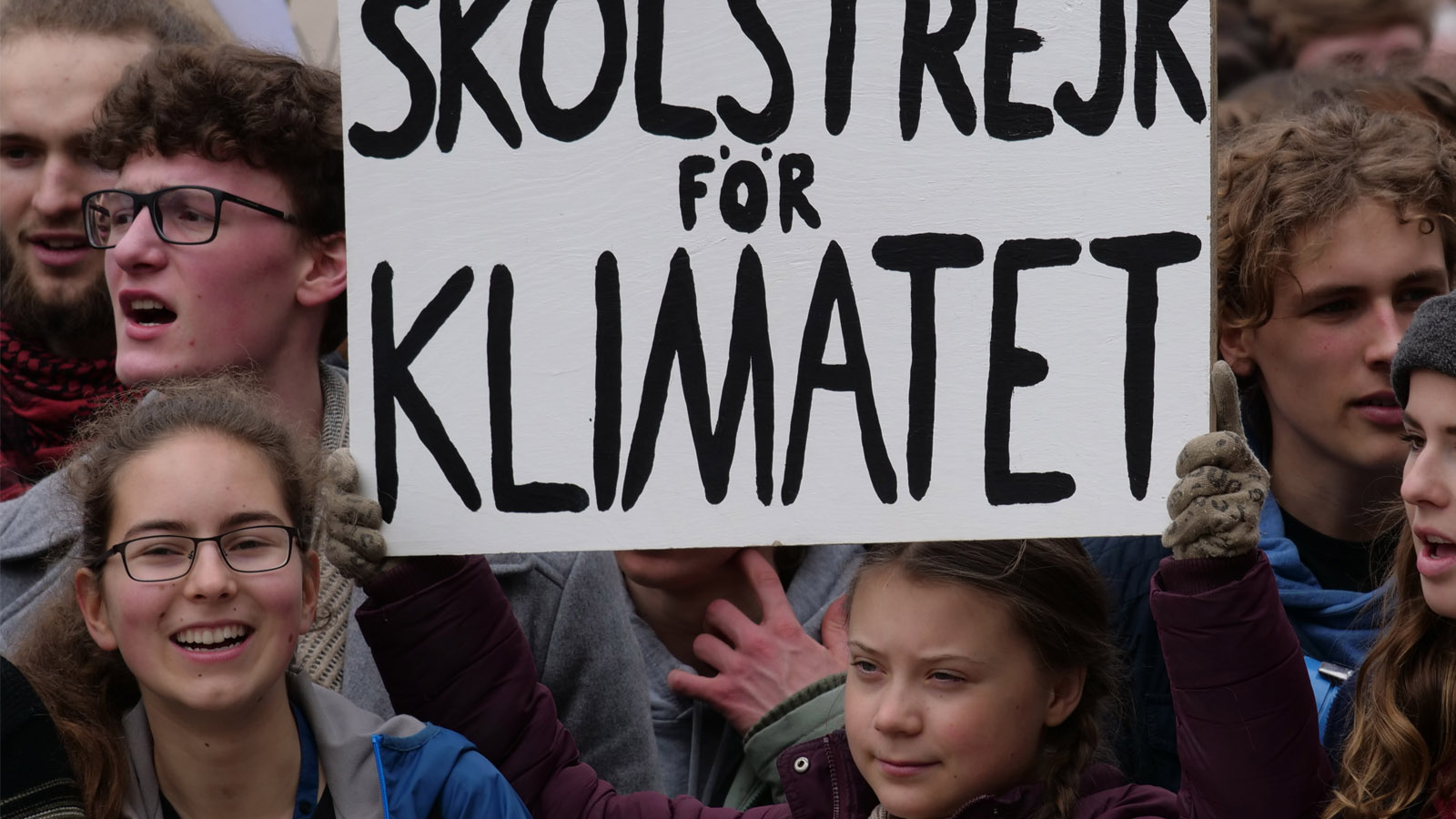How to get rid of autocrats
Progressive parties must bundle ecology, anti-authoritarianism and multiculturalism into a political project ‘beyond right and left’, argues Claus Leggewie. Resistance now means social and ecological campaigning against the dominant powers and ideas of industrial modernity. The right is called upon to take part in this new politics of concordance.
The secret of the future is this: anything can happen.
Viktor Orbán
Contrary to the exultant predictions of the early 1990s, the form of rule of our times is not democracy. Of the 195 states in the world, the majority are still democracies. But today, the tone is being set by plainly authoritarian regimes and autocracies. For years, the broadly defined ‘Centre Left’ has watched helplessly as its influence and opportunities have depleted, to be replaced by scorn, hate and persecution. The forces of democracy, often caught in irreconcilable competition between liberals and leftwingers, need to go on the offensive and foreground their unity against the New Right. Although autocrats and authoritarian movements enjoy considerable support in the population, they don’t possess a real or stable majority. Their power often results from the defects of previous political systems, and in particular from the failure of the different branches of the opposition to combine their strengths.
The ‘ideal autocrat’ might exist, but the ‘ideal opposition’ does not. This is because the confrontation is not just between autocracy and democracy. Everywhere, including now in the USA, the ‘democratic camp’ itself is torn between offering a radical-progressive counter-programme and creating a refuge in the centre for conservatives worried that the slide into authoritarianism has gone too far. The dilemma is that while conformism reaps no rewards, there is generally no broad support for a radical break. Because majorities are easier to obtain with appeals to ‘bread-and-butter’ concerns in the hinterlands than by cultivating ideological-cultural differences and preferences in urban centres, opposition seems like trying to square the circle. Activists tend to be found in milieus that demagogues and ‘tribunes of the plebs’ can polemicise against most easily.
Authoritarian mass mobilisation thrives on the dissemination of such hostility through television, the tabloid press and social media. Door-to-door canvassing is generally more successful, as is the intelligent use of social networks by and for younger target groups. Autocrats exploit the conformism of the ‘lonely crowd’ (David Riesman), whereas the opposition’s advantage lies in its social rootedness and ability to turn the conversation towards projects for a better future. To make that possible, the link between civil society and party democracy must be repaired: without it, leftwing and liberal parties won’t build momentum; and without a march through the institutions, the activists won’t achieve much either.
Back in 1985, Jürgen Habermas published a collection of essays entitled Die Neue Unübersichtlichkeit (The New Obscurity). The title expressed irritation at the rapidity with which familiar political co-ordinates had been confused, and how the centre of gravity had shifted rightwards towards a ‘neoliberal authoritarianism’ (Stuart Hall). Social scientists once sought to create clarity, mapping social splits and political conflicts using simple tables. Such ‘cleavages’ ran through society and consciousness; through values and attitudes; through political orientations and party systems.
Traditionally, there are four main oppositions, which have appeared in historical succession: between centre and periphery, with the emergence of the nation state; between religious and secular currents, after the wars of religion; between town and country, with the advent of urbanisation; and between capital and labour (or state and market), dominant in the industrial age (and under the aegis of the welfare state). Although these crude typologies have always failed to consider cultural and regional divides, they remain visible in present-day conflicts. They are present, for example, in the independence movement of the Catalans, of the Scots, the Berbers and of other regionalists; in the rift between well-off urban elites and the ‘left behinds’; in the struggles over abortion and gay marriage; and in conflicts over the distribution of income, work, housing, opportunities, and security in old age.
In western liberal democracies, the party system captured these clashes over ideology and redistribution, giving them political form. However, the polarity dominating politics since the early-nineteenth century is fading out. The slogan ni droite ni gauche (‘neither left nor right’) has been used by very different social and political movements since the early-twentieth century, from the fascist currents of the interwar years to the environmentalist movements of the 1970s and the recent movements-cum-parties like La République en Marche in France. Yet social-economic battle-lines remain powerful, with inequality and injustice or redistribution and solidarity continuing to motivate protests and legislation.
However, it is above all the ecology movement that abandons categories of left or right, and instead sees itself as ‘forward looking’, as a vanguard in a post-industrial conflict that subordinates the modern ‘social contract’ to a ‘natural contract’ (Michel Serres). This is similar to the women’s movement, which took up the Left’s demands for equality at the level of gender, but with its critique of patriarchy challenging the cultural order as a whole. Again, questions of distribution remain contemporary in demands for equal pay for equal work, but the challenge to male dominance touches on the symbolic foundations of society itself.
In encouraging new social movements, environmentalists and feminists were introducing a cultural conflict into the schema, one that can be described as ‘authoritarian’ vs. ‘liberal’. Comparative analyses of value shifts reveal a global move towards post-materialism. This doesn’t mean that the left-right dichotomy is passé – in the neoliberal era, social equality and the welfare state are more relevant than ever. But they must now be put in relation to the tension between individual freedom and traditional (state) order, between ethno-nationalism and multiculturalism, and between secularity and religion.
This produces the ‘obscure’ configuration of intersecting fault lines and reciprocities that the ‘catch-all parties’ in Europe can no longer contain. The almost logical result is the rise of nationalist, green and single-issue parties. Conventional voters see themselves as ‘loyal’ to the old cornerstones, but for all the rest a political game of musical chairs is underway. Long pigeonholed as a ‘single issue’, environmental protection has become increasingly urgent in the face of catastrophic climate change and biodiversity decline. This puts redistribution, the traditional domain of the Left, into perspective and sheds new light on the conservative preoccupation with ‘the sanctity of life’. At the same time, the renaissance of nationalism has resurrected racist and white-supremacist ideas that had been considered defeated; the same goes for the notion of a new (Judeo-)Christian ‘Reconquista’ in cultural conflict with Islam. Populist-authoritarian movements have become vehement opponents of environmental and climate protection and defenders of the industrial model, making them the chief enemies of Green parties, especially in Germany.
Intergenerational dynamics, on the other hand, are rarely considered in this architecture of fault-lines. Generations are the only purely temporal form of socialisation, loosely joining age cohorts with common experiences and expectations. Loosely, because young protest movements have always positioned themselves against the ‘old’, although explicitly ‘youth’ parties (such as Viktor Orbán’s now autocratic Fidesz) have rarely lasted. The European youth movement Fridays for Future, triggered by the mega-issue of climate change, demands our attention and forces us to ask whether it represents a stronger generational fault-line whose politicisation and party-political orientation remains to be seen.
In November 2019, at the 30th European Meeting of Cultural Journals in Berlin, Claus Leggewie discussed the future of protest movements with some of today’s leading activists.
Where younger people generally favour environmental protection, Europeanisation, anti-authoritarianism and multiculturalism, ‘progressive’ parties must effectively bundle these attitudes into a political project ‘beyond right and left’. A strategy paper for the Friedrich Ebert Foundation recently recommended that the Social Democratic Party of Germany should follow a ‘middle of the road’ strategy between ‘Macronism’ and ‘Corbynism’, in the manner typical for central and northern European social democratic parties. This is like telling the Democratic Party in the US to adopt the middle ground between Bernie Sanders and Joe Biden. It will be unlikely to be enough to save the European Left, let alone renew it.
The Left thinks in categories of redistribution and entitlements that are limited nationally – and intellectually – to the classical welfare state, as if the nation state were the End of History. They share this narrow-mindedness with the Right, which tries to compensate for the nation state’s factual loss of control with extreme chauvinism. On the other side of the democratic camp, liberals have complacently regarded inequality as a by-product of globalised economies, ignoring people’s need for security. The concerns of the ‘somewheres’ (David Goodheart) have been neglected. That, too, has substantially buttressed autocratic tendencies.
Ultimately, the survival of democracy – not itself the end of history! – depends on the political Right’s ability to self-reflect. Like a century ago, it stands at a crossroads, heading either towards open fascism, or reconciliation with liberal modernity. Christian Democrats in Europe and in South America took the latter step, in reaction to immense catastrophes. After the Second World War, concordance mechanisms were built into the political system in order to involve the greatest possible number of political actors. At the time this mainly had to do with national welfare-states, a scale that has become too narrow in view of the planetary challenge of environmental crisis. Contemporary polarisations have caused consensus, compromise and concordance to disintegrate.
If, as Orbán remarked, the future is open and anything is possible, then the isolation and marginalisation of the New Right is not the only option. A new form of concordance, one geared towards these global problems, is also conceivable. Long overdue, it is what these protest movements so clearly demand.
In Germany, only a radical minority opposes democratic rule and lifestyles. But many citizens doubt whether real-existing democracy still ‘delivers’, above all when it comes to welfare-state mechanisms. The vast majority are convinced of the necessity and feasibility of well-regulated immigration and supports cultural plurality. This ought to mean that the Alternative für Deutschland doesn’t stand a chance. At the beginning it was driven by the chauvinism of the well-off, combined with middle- and working-class fears of status loss; then came the ‘refugee crisis’, which was neither prepared nor explained, triggering a psychologically understandable sense of disorientation. The AfD profited from the crisis, cashing in simply by causing a row, without needing to offer any actual alternative – or so it thought.
More serious is its base in eastern Germany and in deindustrialized regions in the West. Here, it is less a question of a real or perceived failure to recognise people’s contribution to society than a class struggle that has skewed to the right. But here, too, the AfD can be stopped, not just through consistent and complete refusal by the other parties to enter into coalition with it, but also by overcoming polarisation and, both in Germany and in Europe, finding consensual solutions to real problems. As 2019 has finally made clear, that means focusing on questions of climate change and the environment.
The ‘Thunberg effect’ consists not in having made climate change into an ‘issue’. For the informed and the attentive, that happened with the World Climate Conference in 1979 and the Kyoto Protocol 1996; and for everyone else, with the Copenhagen climate conference in 2009. Rather, the important of Fridays for Future lies in having made environmental politics ‘real’, be it through ongoing street protests or the tectonic shifts in the party system. Both have shown to political elites that they can no longer get away with ‘business as usual’ attitudes and paying the issue mere lip service.

Greta Thunberg at the front banner of the FridaysForFuture demonstration in Berlin. Photo from Wikimedia Commons
Protecting the climate and the biosphere, and developing a utopian yet concrete natural and social contract, is a historic challenge comparable in importance to the workers’ and women’s movements. It is time that identity politics, whether on the Left or the Right, takes stock of this change. Precisely because of the Thunberg Effect, resistance against the Right now means resistance to the dominant powers and ideas of industrial modernity. It identifies populist-authoritarian nationalists as the forces opposing global change, risking the survival of present and future generations. In the truest sense of the word, they stand accused.
The focus of the resistance now shifts from necessary anti-fascism to social and ecological campaigning, and thus from sharp antagonism against the Right to an inclusive model of concordance. Liberal democracies depend on consensus, the result of conflicts of opinion. They depend on parliamentary compromise and on the co-operation of parties and associations. This doesn’t have to take the institutional form of neo-corporate democracies. But it does mean that the Right-Left polarisation gives way to an ‘ecological pole’ that assumes the priorities of politics and reaches consensual solutions without ‘rotten’ compromises.
Because protecting the climate and staving off mass extinction have major implications for foreign policy and global security, it entails reconstructing a liberal internationalism against ‘country first’ tendencies. It means strengthening and reforming multilateral institutions. Most Europeans and Americans support a different ‘populist’ agenda: higher taxes on corporations and the super-rich, government healthcare, higher minimum wages. Support for a Green New Deal is growing, in particular when taxes (e.g. on CO2 emissions) are channelled into green investments for sustainable development and future generations. The climate catastrophe of which Greta Thunberg rightly warns offers an exciting opportunity for creative action in society and the economy.

Claus Leggewie’s new book Jetzt! Opposition – Protest – Widerstand (‘Now! Opposition – Protest – Resistance’) is published 12 September 2019 by Kiepenheuer & Witsch.
Published 11 September 2019
Original in German
Translated by
Edward Maltby
First published by Eurozine
© Claus Leggewie / Eurozine
PDF/PRINTIn collaboration with
In focal points
Newsletter
Subscribe to know what’s worth thinking about.
Related Articles

The climate of hostility in which the assassination attempt on Robert Fico took place has been a feature of Slovak politics for the past two decades. And Fico has played a decisive role in creating it. How the situation in Slovakia came about – and whether it will continue to deteriorate.

TikTok populism
A Europe Day special
Young voters are getting more engaged in European politics, but this growth starts from a very low point. Radicalization is increasing, and most people connect with politics emotionally and through communities. The EU holds vast power and potential, but how can it engage young people ? Standard Time’s Europe Day episode premiering today at 5 PM CET.






